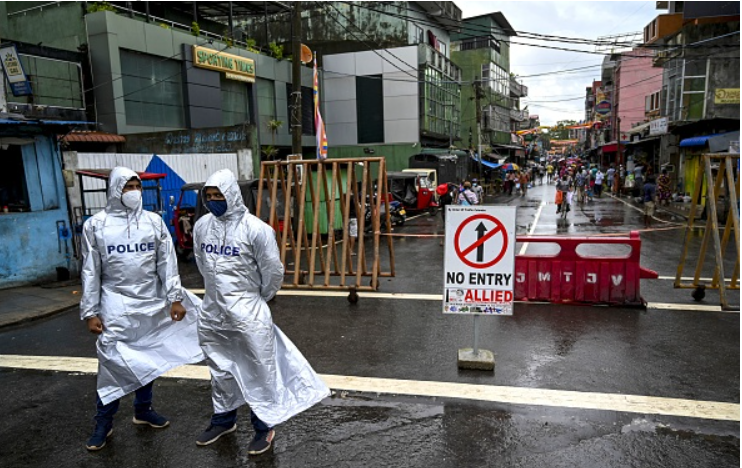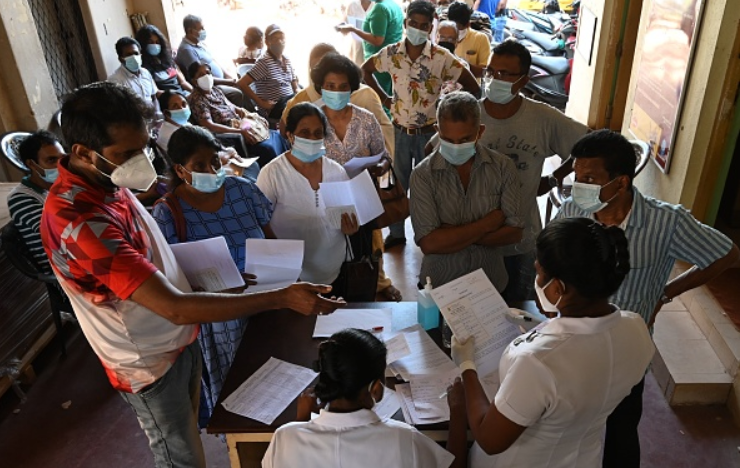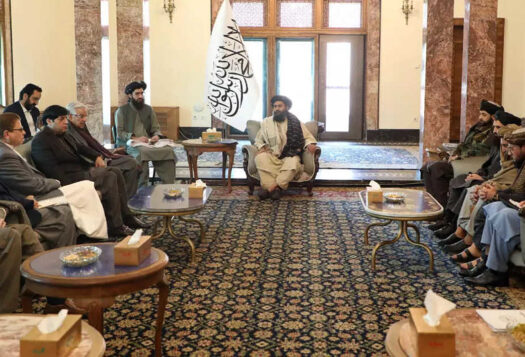
Sri Lanka’s initial successes in curbing COVID-19 spread a year ago are now a distant memory. The Sri Lankan government hoped to vaccinate at least 60 percent of its adult population by the end of the year. Like most other South Asian nations, Sri Lanka’s COVID-19 vaccination efforts were severely hampered by a third wave of cases in India, subsequent disruptions to vaccine supplies, and the emergence of its own third wave since April. As of May 27 2021, a total of 341,962 Sri Lankan’s have been fully vaccinated (given both doses) through Covishield (AstraZeneca), while another 1,161,673 have received the first dose of Covishield, Sinopharm, or the Sputnik – V vaccines. Thus far, only healthcare workers and other frontline workers have been fully vaccinated (approximately 2.5 percent of total adult population) while approximately 10 percent of the country’s total adult population has received at least partially vaccinated.
Sri Lanka’s COVID-19 vaccination efforts were severely hampered by a third wave of cases in India, subsequent disruptions to vaccine supplies, and the emergence of its own third wave since April.
Initial Vaccine Rollout
Sri Lanka began its vaccine rollout in late January, using a donation of 500,000 Covishield vaccines from the Indian government. The vaccination drive was complemented by a further consignment of 264,000 Covishield vaccines that arrived through the WHO’s COVAX facility. In total, Sri Lanka was expected to receive approximately 1.4 million doses by May through COVAX. The government, through the Serum Institute of India, had also ordered a further 2 million doses. However, the sudden emergence of a third wave of COVID-19 cases in India and the subsequent ban on vaccine exports severely disrupted the island’s vaccination strategy. For instance, between the January 29 and the March 25, Sri Lanka had given 869,709 Covishield first doses. Since then, only 55,533 further Covishield first doses have been given to the public and as noted previously, only frontline workers have thus far officially received both doses. Effectively, the country is currently facing a shortage of approximately 600,000 Covishield vaccines to cater to those who received the first dose in February and March but yet to receive the second dose. It is possible that these individuals may not receive a second dose within the recommended 12-week period, potentially imperiling the efficacy of the vaccination effort.
Emergence of a Third Wave
Disruptions to Sri Lanka’s vaccination efforts are further complicated by a rapid increase in COVID-19 cases since April due to the fast spread of a new variant of COVID-19. The seven-day average of positive cases that were below five hundred in early April, partly influenced by a policy to reduce testing, has now increased to a seven-day average close to three thousand. A similar increase can also be observed with COVID-19 death rates, from the low single-digits in early April to approximately thirty daily deaths currently. The rapid rise in cases around the country has subsequently placed an unprecedented burden on the country’s health infrastructure, leading to reported shortages in quarantine and healthcare facilities. In mid-May, following nearly a month of trepidation and conflicting opinions amongst officials, the government imposed island-wide travel restrictions for three weeks, putting the country into a quasi-lockdown. This is scheduled to last until the June 7.

Finding Alternatives
In the absence of adequate Covishield vaccines, Sri Lanka has since moved towards procuring Sinopharm and Sputnik-V vaccines from China and Russia respectively. Sri Lanka received initially received 600,000 Sinopharm vaccines as a donation from the Chinese government at the end of March 2021; however, its administration was delayed since the vaccine was not approved by the National Medicines Regulatory Authority (NMRA), amidst significant political pressure. Notably, in the absence of approval for domestic use, approximately 2500 Chinese nationals currently living in Sri Lanka for development projects were given both doses using Sinopharm in April. Sri Lanka restarted its COVID-19 vaccination drive in May following WHO approval for the Sinopharm vaccine and subsequent NMRA approval in early May. The Chinese government has since donated a further 500,000 Sinopharm doses to Sri Lanka. In addition to the AstraZeneca and Sinopharm vaccines, the NMRA has currently granted emergency use approval for the Pfizer and Sputnik-V vaccines as well.
In the absence of adequate Covishield vaccines, Sri Lanka has since moved towards procuring Sinopharm and Sputnik-V vaccines from China and Russia respectively.
Notably, in the absence of adequate AstraZeneca/Covishield supplies, the Sri Lankan government has had to procure relatively more expensive alternatives such as Sinopharm and Sputnik-V. The government has reportedly ordered 14 million Sinopharm vaccines and a further 13 million Sputnik-V doses. Thus far, out of these orders only 50,000 Sputnik-V doses have been received a consignment of 1 million Sinopharm doses are expected on the June 6.
Uncertain Future
Sri Lanka’s failure to procure and deploy adequate COVID-19 vaccines much earlier in the process has placed the country in a position exposed to supply disruptions. In the absence of an effective vaccination initiative, the population is also vulnerable to new variants of COVID-19, which has spread rapidly across the country in recent months. As a result, Sri Lanka will face an uphill battle achieving its objective of fully vaccinating at least 60 percent of its adult population by the end of the year. Continued delays in achieving this will likewise prolong Sri Lankans’ economic hardship.
Views expressed here are the author’s own and should not be attributed to any organization with which he is affiliated.
***


